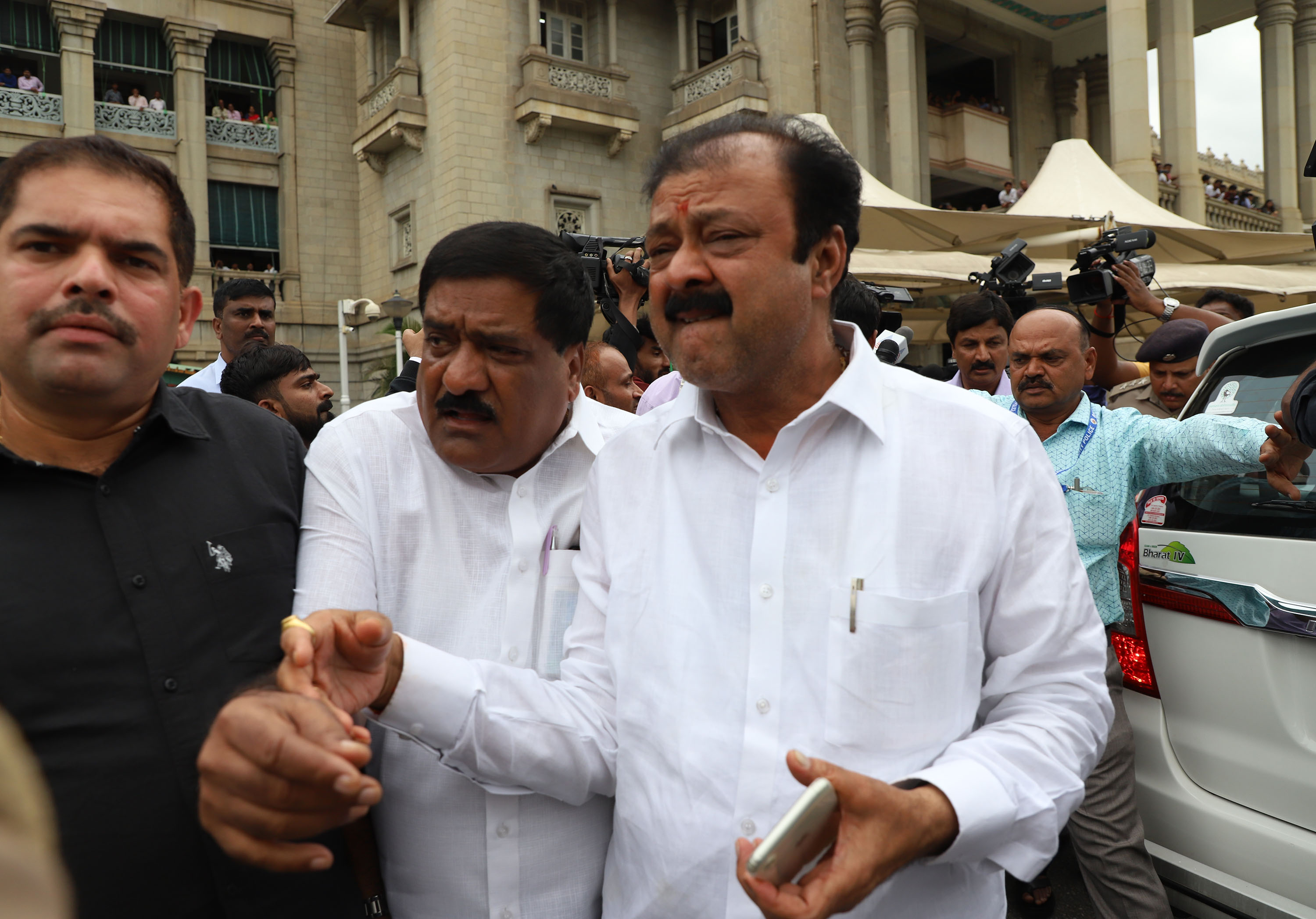
Are mass resignations of Karnataka MLAs constitutional?

As the political drama in Karnataka unfolds, the Constitutional role of the Speaker, to accept or reject resignations, becomes crucial for further course of action, which will script the health of democracy.
However, as much as the onus is on the Speaker, MLAs too are equally responsible to uphold democratic and constitutional values. It seems that authors of the Indian constitution may have prophesied and laid down clear rules to avoid the dilution of democracy for personal gains.
The Constitution refers to the possibility of resignation by an MLA under Article 190 under the title ‘vacation of seats’. This Article talks about vacating a seat when an elected representative ends up holding membership in more than one House.
For example, if a member of legislative council (MLC) gets elected to the legislative assembly or Lok Sabha, she/he must choose to retain just one within the prescribed time frame.
Conditions for genuine resignation
Article 190(3)(b) says a seat will become vacant if an elected representative “resigns his seat by writing under his hand (or resignation) addressed to the Speaker or the Chairman, as the case may be, and his resignation is accepted.”
However, this is followed by a proviso.
“Provided that in the case of any resignation referred to in sub-clause (b), if from information received or otherwise and after making such inquiry as he thinks fit, the Speaker or Chairman, as the case may be, is satisfied that such resignation is not voluntary and genuine, he shall not accept such resignation.”
There are three requirements of resignation:
- It should be in writing
2. Under his (legislator’s) hand
3. Letter should be addressed to Speaker or Chairman
4. Should have been accepted by Speaker or Chairman
Article 190 specified certain duties to the Speaker or Chairman before accepting anybody’s resignation. They are
- Speaker or Chairman has to conduct an inquiry
2. The process of inquiry is as he thinks fit
3. Speaker or Chairman should be satisfied that such resignation is voluntary and genuine.
However, according to Article 190, Karnataka Assembly Speaker K R Ramesh Kumar has a duty not to accept the resignations if he is not satisfied that they are voluntary and genuine.
Duty not to resign
The Constitution doesn’t encourage legislators to resign without any genuine reason. No political party or any other agency can induce, force or blackmail any legislator to resign to help serve the political interests of a party. The rationale behind this is the expense behind holding an election and the responsibility of an elected representative for a period of five years not to throw away the mandate in between.
The Karnataka Speaker must convince himself through inquiry if the reasons behind the resignation are genuine.
The political atmosphere after poll defeats shows that there is pressure on legislators with tempting inducements. Five-star hotels are arranged and special flights are hired for their transport. It is not known if individual MLAs are spending such huge amounts from their own pockets or if someone else is bearing the cost.
If the bills are paid by legislators, the Speaker may find a reason to satisfy that resignation is voluntary. However, if somebody else is paying, then the resignation is not genuine. The very fact that the MLAs are put in luxurious, “custodial camp” shows someone is interested in keeping them out of reach from their own party leaders and to keep them in touch, with the group having vested interest in their dissent.
If a legislator genuinely wants to go on a holiday or remain disconnected from political activity for peace, it’s unlikely that she/he will go to a five-star hotel with fellow legislators.
The very fact that most of the MLAs are in a custodial camp shows that the resignations are not voluntary and genuine. Prima facie, there are no reasons for these legislators to resign, except to topple the present government and lend support to another government. If these legislators join the next coalition, that will be final proof of resignation as not voluntary and not genuine.
Every legislator who resigns has a duty to inform the Speaker why she/he is resigning and prove the reasons to be true. If not, it will amount to conspiracy against the government in breach of Constitutional norms.
(The author is a professor of Constitutional Law at Bennett University and ex-Central Information Commissioner.)
(The Federal seeks to present views and opinions from all sides of the spectrum. The information, ideas or opinions in the articles are of the author and do not reflect the views of the website.)


